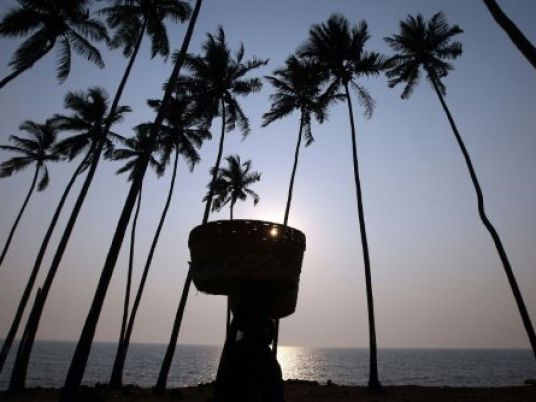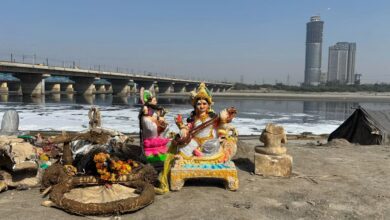
Politicians in India's Goa are locked in an row over the status of the popular tourist state's beloved coconut trees — after officials ruled that they were not in fact trees.
Goa's legislative assembly last week reclassified the coconut tree as a palm to make it easier to cut down those that had become dangerous.
Opposition politicians reacted with outrage, claiming the ubiquitous plant would no longer be protected from widespread felling.
Vijai Sardesai, an independent lawmaker, did not shy away from expressing his disgust, posting an angry comment on Twitter that accused the state government led by the Bharatiya Janata Party of "environmental terrorism".
The coconut tree — often referred to as "The Tree of Life" — blankets large parts of the tiny state and lines its famous pristine beaches.
Goa's chief minister Laxmikant Parsekar hit back, claiming some politicians were trying to use the issue as "blackmail", in quotes carried by the Press Trust of India (PTI).
Parsekar justified Friday's amendment to 'The Goa, Daman, and Diu Preservation of Trees Act, 1984', saying it would make it easier to cut down "economically unviable" trees and replace them with newer ones.
The Goa government has also said it was necessary to remove the coconut from the list of protected trees as some had become dangerous and posed a threat to human life and property.
Officials are believed to have felt that the coconut palm could be reclassified because it does not have branches and thus fails to fulfil the criteria for a tree, PTI said.
But opponents refuse to be palmed off. They fear large swathes of coconut trees could now be chopped down to clear space for development.




